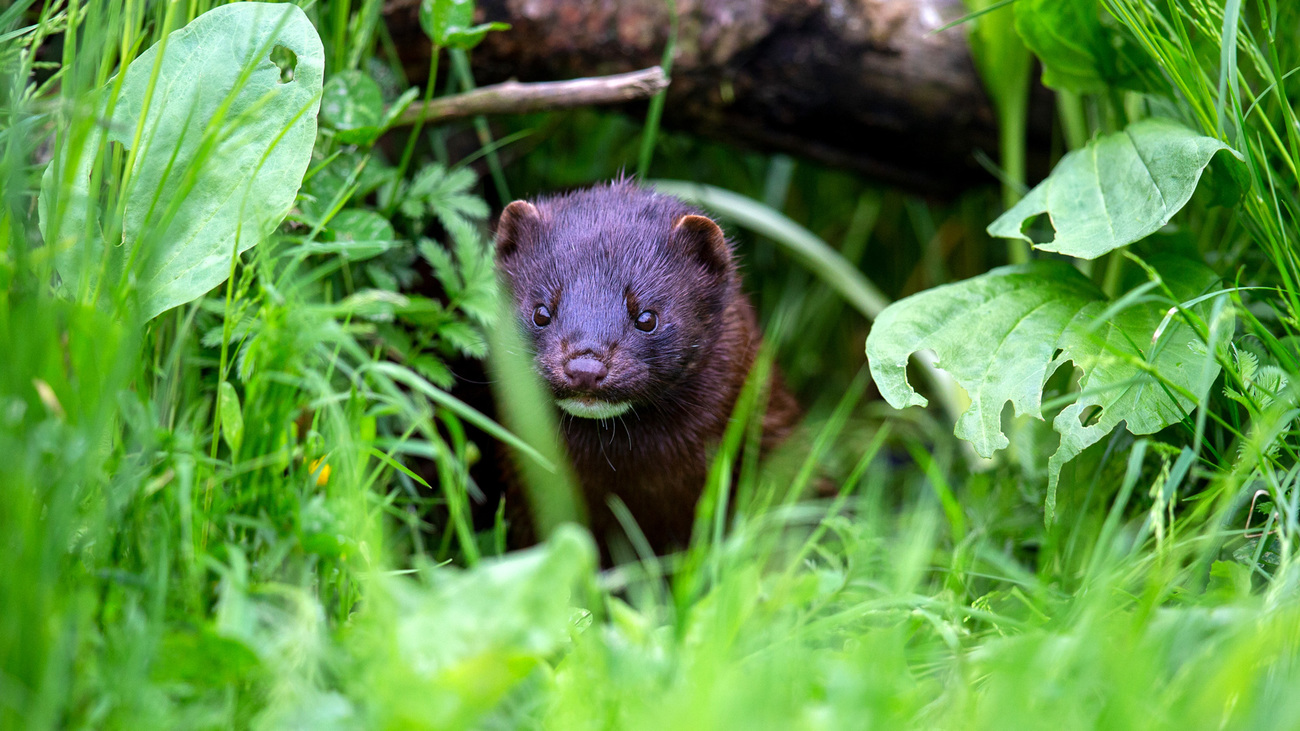Why we should all be concerned about exotic pets and other alien species
Why we should all be concerned about exotic pets and other alien species

Written by Maja Metzger, IFAW campaigns officer
The growing number of invasive alien species worldwide severely threatens biodiversity and human welfare—and the problem will only worsen if we don’t act now.
That’s the conclusion of a recent report by the Intergovernmental Platform on Biodiversity and Ecosystem Services (IPBES) on the global impact of invasive alien species.
The report says that human activities—such as travel, shipping, and trade—have introduced more than 37,000 animals, plants, and other organisms to environments where they don’t naturally belong. Those “alien” species have then established themselves in their new homes.
Around 3,500 of these species have become invasive alien species, seriously threatening both their new ecosystems and nature’s contributions to people’s health and wellbeing.
In fact, invasive alien species have contributed to 60 percent of recorded global extinctions. They’re one of the five major direct drivers of biodiversity loss globally, along with changes in land and sea use, direct exploitation of organisms, climate change, and pollution.
And their threat carries a hefty price tag. The global economic cost of invasive alien species reportedly exceeded USD$423 billion annually in 2019, with costs at least quadrupling every decade since 1970. That’s because these species can transmit diseases, wipe out crops or livestock, and contaminate water supplies and food sources.
What’s more, the people who live closest to nature are suffering the most, further increasing global inequality.
The troubling link between exotic pets and invasive alien species
The escape or release of exotic pets into the wild is one of the main ways alien species become established in new environments.
At IFAW, we consider an exotic pet to be any wild, non-domesticated animal that is kept as a pet. In the exotic pet trade, animals can be caught in their natural habitats or bred in captivity and end up in a living room on the other side of the world.
A lot of animals suffer or die because traders or their new owners are unaware of their complex needs. The animals sometimes manage to escape or are abandoned in the wild when they become too expensive or difficult to care for.
This is not only detrimental for the animals themselves but can harm entire ecosystems. In the wild, alien species compete with native species for resources and can modify their new ecosystems with terrible consequences for biodiversity. Burmese pythons, for example, are native to Southeast Asia but became a popular pet in Florida. A few pythons got loose, and now thousands of them live in the Everglades, competing with native animals over food and preying on endangered species.
The capture of wild animals can also throw their native ecosystems out of balance and threaten conservation efforts.
Aside from animal welfare, conservation, and biodiversity concerns, keeping exotic pets comes with other risks. They might carry zoonotic diseases, which originate in animals and spread to humans, sometimes with fatal consequences.
How we can solve the problem
The new IPBES report stresses that action is urgently needed, and it recommends that decisionmakers adopt coherent preventive policies and codes of conduct across sectors.
The IPBES report recommends creating list that specifies which alien species can be imported as a policy option for the exotic pet trade, as well as other trades. At IFAW, we support the introduction of a list—called a positive list—that identifies species allowed to be kept as pets. However, in addition to the invasiveness risk, such a list should consider the risks to species conservation and to the health and welfare of animals and people.
In the almost 30 years IFAW has been working on trade in exotic pets, digitalisation has shifted marketplaces online. Through online marketplaces and social media platforms, buying an exotic pet has become easier.
That’s why IFAW also supports the adoption of harmonised codes of conducts by online platforms to better regulate the online trade and provide adequate information to buyers. For instance, we want the EU Action Plan against Wildlife Trafficking and its planned guidelines on the online trade in wild species to include the invasiveness risk of various species.
Prevention and preparedness are the most cost-effective ways to manage the threats from invasive alien species. Policymakers have a big role to play—but it’s in every person’s best interest to understand the high cost of exotic pets.
Related content
Our work can’t get done without you. Please give what you can to help animals thrive.